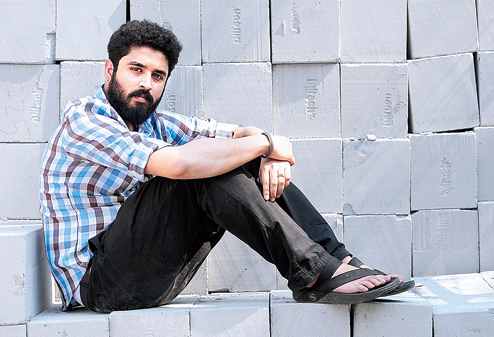

It was a movie that no producer dared to touch. Asha Jaoar Majhe doesn’t have any dialogue and it’s a sombre tale about a husband and wife in Calcutta who work on different shifts and never get to meet each other. But the film has already swept up a clutch of awards both at home and abroad, and received glowing praise from leading figures in the movie industry.
For the movie’s young director, it’s all about living out a dream. Asha Jaoar Majhe is the 31-year-old director’s first movie and he has scooped up two National Film Awards for Best Debut Film of a Director and Best Sound Designing. And this comes after winning a stack of awards at prestigious film festivals all around the world. Sengupta — who shot, edited and wrote the screenplay of the film — bagged the Best Director of a Debut Film award at Venice Days (an independent sidebar at the Venice International Film Festival) and the Marrakech International Film Festival presented him with the celebrated Best Director award. Incidentally, the last Bengali director to win awards at Venice was Satyajit Ray in 1957.
Also, Asha Jaoar Majhe (its English title is Labour of Love), which has already participated in over 40 film festivals, was the only Indian film to be screened at Abu Dhabi and Marrakech film festivals this year, and to compete at BFI London Film Festival.
All these are considerable achievements for a debut director. Especially, since getting the film made was not smooth sailing at all. The 84-minute film, produced by For Films (owned by Sengupta and his wife Jonaki) was made on a modest budget and with very basic equipment. “We used all our savings to make the film,” says Sengupta. The film was shot over three schedules spanning one year. He says: “We worked with a crew of seven to eight people, an old camera and two lights.”

The art house movie is about a day in the lives of a couple (Ritwick Chakraborty and Basabdatta Chatterjee). The woman works in the morning and the man, at night, to make ends meet. And, though they live in the same house, they don’t get to meet each other. There’s only one scene where they meet and “whether that’s in real life or not is up to the audience to interpret,” says Sengupta.
Most crucially, the film stands apart from others because it does not have any dialogue — though there are plenty of ambient noises to supply the mood of the city. But Asha Jaoar Majhe wasn’t planned as a silent movie of sorts. “There were dialogues in the script initially,” says Sengupta. “But as we went along, they took a back seat. The scenes developed a language of their own.”
With its theme and treatment, the Western world has taken notice of Sengupta’s debut venture. The Huffington Post describes it as “a lyrical masterpiece” and noted critic and historian Derek Malcolm says the film “heralds a new and original voice in Indian independent cinema”.
Back in India too, the buzz around the movie has started to grow. Top names like directors Goutam Ghose and Ritesh Batra, and actor Irrfan Khan have applauded the film. Ghose says about the film: “I have not seen a better Indian film in recent times.”
Sengupta’s hoping that the Indian and global awards will help him to do a commercial release for the film “as soon as possible”. He is currently in talks with distributors and believes the buzz around the movie may help him. “This will help the movie gain prominence in India,” he says.
A graduate from National Institute of Design, Ahmedabad, Sengupta started off as a promo director for Channel V. “But I was always interested in the world of films,” he says.
It was when a friend suggested to him that he should read a short story, The Adventure of a Married Couple, by Italian author Italo Calvino that it struck him that he could make a film out of it. For now, spurred on by the success of his film, Sengupta has already started writing his next. He won’t reveal details but it will once again take place in Calcutta. He says tersely: “It’s a dreamy fairytale about the alienation I feel in my city.”










